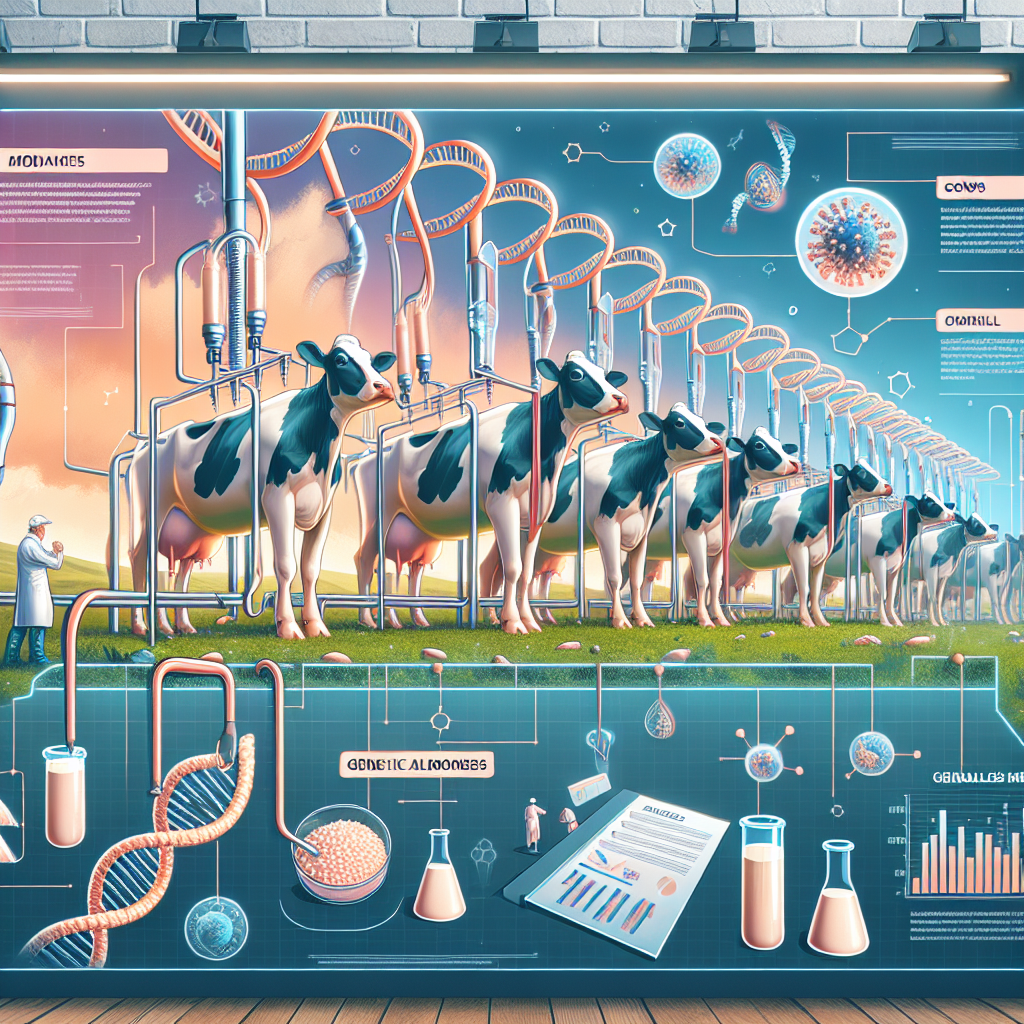China’s new super cows could skyrocket your herd’s milk production. Ready to see how?
Summary: China is making waves with their ‘super cows,’ dairy cows engineered to produce significantly higher milk yields. This breakthrough, led by Yaping Jin and conducted at Northwest A&F University, utilizes advanced cloning and genetic modification techniques to boost dairy production. Born healthy in Lingwu City, these calves are part of an ambitious plan to create over 1,000 super cows, reducing China’s reliance on imported cattle. While promising, adopting such technology poses challenges, particularly for US dairy farmers who must navigate complex breeding methodologies and potential regulatory hurdles. Overall, China’s advancements could signal a transformational shift in dairy farming worldwide, presenting new possibilities and considerations for stakeholders in the industry.
- China has successfully cloned cows that can produce exceptionally high quantities of milk.
- These “super cows” produce around 50% more milk compared to average cows.
- Breakthrough in genetic modification and cloning played a crucial role in this development.
- Potential benefits include reduced need for imports, lower farming costs, and increased milk supply.
- Challenges such as ethical concerns, cost, and technological barriers may impact adoption in the US.

Meet China’s super cows: genetic wonders poised to transform dairy production. Consider having dairy cows in your herd that can produce almost twice as much milk as your top cows while being healthier and more resilient. Doesn’t this seem too incredible to be true? No, it is not. Chinese scientists have used cutting-edge genetic engineering to clone cows that could dramatically change the dairy farming landscape as we know it, providing incredible milk production (up to 18 tons of milk per year, roughly twice the average yield), improved health due to resistance to common diseases, and increased efficiency with less feed and fewer resources required. Advances in genetic cloning technology may soon be accessible internationally, enabling you to increase the production and efficiency of your herd significantly. According to an industry analyst, “The potential for these super cows is enormous.” Imagine tripling your milk output without increasing your overhead expenditures.” Discover how this invention may boost your farm’s milk output. Read on to learn more.
Decoding the Science: Cloning and Genetic Modification Made Simple
To help you comprehend the “super cow” concept, let’s go over the fundamentals of cloning and genetic alteration. Cloning is the process of creating a photocopy of a live thing. Scientists extract cells from an adult animal, such as a cow’s ear, and utilize them to generate an exact genetic replica of the original animal. This technique entails introducing the donor animal’s DNA into an egg cell with its DNA removed. The egg then develops into an embryo, which grows into a new mammal genetically similar to the donor.
In contrast, genetic alteration entails directly altering an organism’s DNA. Consider modifying the text of a document. Scientists may add, delete, or modify individual genes to give the animal new traits. For example, they may change genes to make cows more disease-resistant or to enhance milk output. These genetic alterations are passed down to future generations, resulting in a new breed of highly efficient dairy cows.
Both cloning and genetic alteration require modern biotechnologies. These enable us to continually recreate our livestock’s most outstanding qualities, resulting in large yields and good health. While these procedures may seem like something out of a science fiction film, they are based on scientific study and have enormous potential to change how we farm.
Understanding these principles is critical as they become more widely used in agriculture. As a dairy farmer, staying current on these innovations might help you remain ahead of the competition and capitalize on future technologies.
Navigating the Roadblocks to Adopting Super Cows around the World
Implementing this super cow technology may seem like a dream. Still, it comes with hurdles and worries, particularly in the United States, Canada, and the EU. First, there are the regulatory difficulties. The FDA restricts genetically modified organisms (GMOs) and cloned animals.
Now, let us talk about ethical issues. Cloning is not without controversy. Some claim that it is playing God or messing excessively with nature. Others are worried about the cloned animals’ well-being and the possibility of unexpected health complications. Before using this technology, it is essential to consider the ethical implications.
Global Genetic Advancements: Beyond China’s Super Cows!
Scientists are not content with cloning super cows in China. The emphasis is also on breakthroughs with other animals and crops. Genetic improvements for maize, soybeans, broiler chickens, and breeding pigs are now being researched intensively. Northwest A&F University’s remarkable endeavor involves cloning racehorses and even cherished pets. These activities are part of a more significant effort to use cloning and genetic technology to promote food security and self-reliance in agriculture. Keep an eye on these advancements, as they can change dairy farming and cattle management in the United States!
The Bottom Line
Consider improving your dairy output by adding super cows capable of producing 50% more milk than your present herd. This technological breakthrough has considerable advantages, including less reliance on foreign breeds, possible cost savings, and higher yield. The main conclusion is obvious: adopting genetic innovations may transform your dairy operation. Stay current on the newest genetic discoveries and evaluate how incorporating these technologies may benefit your business. According to thought leader Peter Drucker, “The best way to predict the future is to create it.” Why not be at the forefront of the dairy revolution?
Learn more:
- Unlock the Secret to Doubling Your Dairy Herd’s Rate of Genetic Gain: The Power of Cloning Revealed!
- China’s Bold Move Towards Sustainable Farming Could Transform Your Dairy Business
- The Future of Dairy Farming: Insights for US and Canadian Farmers!











